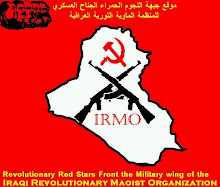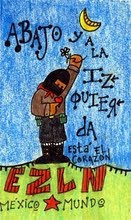Commentary
An accountable world with WikiLeaks
An accountable world with WikiLeaks
By Roland G. Simbulan
Philippine Daily Inquirer
First Posted 06:25:00 12/27/2010
Philippine Daily Inquirer
First Posted 06:25:00 12/27/2010
HAVE WE really come to terms with the impact and implications of WikiLeaks on the security and safety of our planet?
Dubbed by many as the �biggest intelligence leak in history,� the global balance of power has now been altered with a devastating toll on the planet�s sole superpower: the United States. It is ironic that the greatest challenge to the world�s No. 1 superpower did not come from any rival military and economic behemoth. It came from an emerging international social movement, of which WikiLeaks is a part, that envisions technology as a tool for political change through freedom of information. Contrary to the opinion of those who have ordered public fatwas on WikiLeaks founder Julian Assange, the world with WikiLeaks will be a more secure, safe, transparent and accountable one. WikiLeaks seeks to foment a worldwide movement of what its founder Assange calls �mass leaking,� because he says �governance by conspiracy and fear depended on concealment.�
US imperial diplomacy was indeed recently dealt an �epic blow,� as one US official described it, when an entire database―containing 251,287 diplomatic dispatches, or the equivalent of 1.6 gigabytes of text files, to and from the US State Department at Foggy Bottom and the 250 US Embassies and consulates worldwide―was released into cyberspace by Internet whistle-blowers, insiders having access to these highly classified and top secret material. Indeed, these are a smorgasbord of frank intelligence assessments by US Embassy listening posts on foreign leaders and governments.
In early 2010, at least 76,607 US military reports from Afghanistan and 391,832 from Iraq were released to WikiLeaks by a military analyst working for the Pentagon. Until WikiLeaks came along, many did not know that there were many unreported shootings of civilians by US Coalition Forces, and that the US military still encourages the torture of suspected �terrorist� prisoners.
For students and specialists on diplomacy and international relations, the WikiLeaks State Department cables are the scholar�s ultimate goldmine. They are a documentary history of both past and current diplomacy as conducted by the world�s most powerful superpower today. How can we use WikiLeaks to understand our own country and its international relations? There are accounts of corruption on foreign countries both friendly and unfriendly, which are assessed, analyzed and presented with impressions by the classified US diplomatic cables.
World public opinion, even inside the United States, is generally sympathetic to Assange. But governments and states who thrive on lies and deceit, or tyrannical states, are one in condemning this as a breach of national security and a threat to states. WikiLeaks has also spawned and encouraged other similar forms of cyber activism such as IndoLeaks, which has now pledged through documents and multimedia a full accounting and documentation of the Suharto military dictatorship (1965-1997).
The world with WikiLeaks will be more insecure and threatening for military superpowers who wage aggression and occupation of other countries using dubious if not manufactured intelligence reports. It will also be less secure for governments that send their young men and women to fight and die in foreign lands cloaked in a cause based on lies and deceit, when those wars are really for the cause of oil companies and the weapons industries.
We have not yet really come to terms with the impact of WikiLeaks. The most secret of governments, states, institutions, will not be secret anymore. What were once secret intelligence, political, military and economic information, analysis and strategy will not anymore be just for the eyes only of a few decision-makers and officials of governments and corporations. If we knew how our governments spent the money that we contributed through our taxes, perhaps there would be less waste, less misuse and abuse of the state�s vast resources and even less corruption.
This presages the decline, not only of the US imperial power, but of states and governments who rule based on secrecy because they feel that they are not accountable to their people. It is obvious why states which rule as tyrannies and even corporations that plunder without accountability, are afraid if not terrified by WikiLeaks and what it stands for.
Assange reminds me of the demigod Prometheus who stole fire from the gods so that he could share it with all mortal people. Now the offended gods want to tie him to a cliff to be devoured by vultures. What a sight to now see the tables turned around: they daily read our emails, Facebook, text and listen to our private calls. Now that we are the ones reading their mail, what gall they have to say this is a criminal offense!
I agree with the observation made by Heather Brooke, a prominent British freedom of information activist, when she wrote:
�The amount of knowledge in the world is now so vast and technology so adept at zero-cost duplication that no government, company or organization can hope to keep control.�
Total transparency will bring down autocracies and bad governance. Fortunately, with WikiLeaks in our midst, our world will now be more secure and safe from the unaccountable.
[Roland G. Simbulan is professor in Development Studies and Public Management at the University of the Philippines. He is a senior fellow of the Center for People Empowerment in Governance (CenPeg).]




